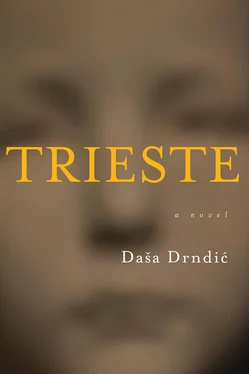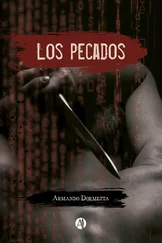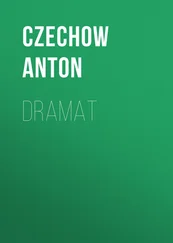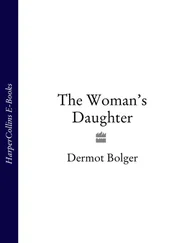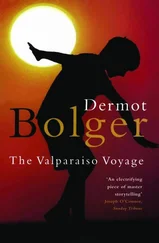Whenever the quota of children at homes and orphanages got low, the Nazis kidnapped children from streets, playgrounds, parks; they tore children from their mothers’ arms, which is what happened with me. A week before I left for Gorizia on Monday, 26 June, 2006 I received a letter from the International Red Cross, or rather from the I.T.S. (International Tracing Service) in Bad Arolsen, in which that organization — or rather a Mrs Helga Mathias — informs me that they have found a copy in Bad Arolsen of a baptism certificate which matches one sent to them on 2 February, 1946, with a black-and-white photograph of a three-month-old infant by a Haya Tedeschi of Gorizia, asking for their help in finding her son Antonio Tedeschi, born 31 October, 1944, in Görz, then part of the Adriatisches Küstenland. The baptism certificate, writes Mrs Mathias, says that the father of child Antonio Tedeschi is S.S.-Untersturmführer Kurt Franz, born on 17 January, 1914, in Düsseldorf, where he died in 1998. Helga Mathias adds that they compared the photograph, which I, Hans Traube, born in Salzburg on 1 October, 1944, sent them on 23 January, 1999. We compared the picture on which you are, as you say, about eight months old, writes Helga Mathias, with the picture of the three-month-old infant sent to us by Mrs Haya Tedeschi of Gorizia, writes Helga Mathias, and we ascertained that the similarity is striking. In a displaced box, among the rare documents preserved about the secret Lebensborn project, Mrs Mathias writes further, we found a letter from Father Carlo Baubela of Görz, now Gorizia, who baptized the child and then handed over to an unknown party a copy of the document about the birth of Mrs Haya Tedeschi's son, being Antonio Tedeschi, who could be you. With the letter from Carlo Baubela, writes Helga Mathias, we found an official order from the Central Office of Reich Security, signed by Reichsführer-S.S. and Minister Heinrich Himmler, who was in charge of that ministry at the time, an order to send the male child of Aryan descent with the temporary name of Antonio Tedeschi to the Alpenland Lebensborn home, to Schloss Oberweis near the town of Gmunden, region of Traunsee, in Austria. Since the registers with documentation of almost all the Lebensborn homes throughout the Third Reich were destroyed just before Germany surrendered, writes Helga Mathias, we are unlikely to find any information pertaining to Schloss Oberweis. I had a week to learn the details of the life of S.S.-Untersturmführer Kurt Franz, though he was already in my private archive, among the officials who were stationed then, between 1943 and 1945, in the Adriatisches Küstenland.
Before I left on my trip, I got in touch with several acquaintances, I can call them friends and fellow sufferers, who have gone through or are still going through the hell I had been going through for eight years, people I met at various gatherings and workshops at which one practises breathing in the truth and at which there is a lot of weeping. Aloizy Twardecki (the Nazis kidnapped him too and changed his name to Alfred Hartmann, then gave him up for adoption to a German family) told me, Come on, perhaps this is the end, though I doubt it. After the war Aloizy was repatriated to Poland and today he teaches at the University of Warsaw. I got in touch with Don Alexander Michelowski, who was ten in 1942 when he was kidnapped from his home and his name changed to Alexander Peters. He knocked around orphanges for years because he was too old for adoption, and later, as a Catholic priest, served the Polish Diaspora in Newcastle. Alexander said, Even God didn’t help me. Helena was adopted by a German policeman and his wife, a seamstress, but after the war she was returned to Poland, and today she is a judge in Warsaw. Helena told me, Write a book, maybe it will heal you. It was hardest to talk with Ingrid von Oelhalfen. Ingrid was stolen as an eight-month-old baby from Slovenia. They kidnapped me in Celje, she said. She was taken to Germany and never returned, and she never found any of her family; she only found this small and useless fact stating that she is not Ingrid von Oelhafen.
My name is Ana Johnson. I was born on 3 March, 1946, in Reutlingen, Germany. Because of an illness of the joints and bones I took my first steps only at the age of two. When my mother Mary Božić tried to board a ship for Australia in 1946 they stopped her. You cannot leave Germany without your child, they said. So Mary waited for me to walk. We arrived in Australia in 1948 and Mary immediately left me at St Therese’s Orphanage in Essendon. On 16 December, 1984, I was found by the Federal Police. Mary Božić has less than a month to live, said the men from the Federal Police. Mary Božić has cancer of the large intenstine and she wants to see you, repeated the Federal Police. We will take you to Mary Božić, they said three times. Then I saw my mother after thirty-six years and I had no recollection of her, so I thought right away that maybe she wasn’t my mother. I nursed Mary Božić and she told me the story of her life as she was dying. On her left arm Mary Božić had a tattoo of a swastika and the number LB 0097. I was a Lebensborn slave, she told me. I worked at the munitions factory in Reutlingen. We produced rockets and rounds for the German Army, she said. There were many S.S. men there. I was beautiful. The S.S. men raped me whenever they felt like it. There were many S.S. men. They raped me often. I was beautiful, she said. Luckily you were born on 3 March, 1946, she said, because had you been born on 3 March, 1945 you would not be alive today. They would have killed you, because Hitler wanted as many male children as possible. I spent my whole life in fear, my mother Mary Božić said, as she lay there dying in Australia, and I told her that I had constantly felt guilty, but didn’t know why. They moved me from orphanage to orphanage, I told my newly discovered mother, Mary Božić, then they sent me to reform school. To this day I don’t know why, because I never had any reason to reform. I was quiet and obedient, I told her. My mother, Mary Božić, died on 2 February, 1985. We talked for a month, for a month we were together. This was a great joy for me. I got in touch with the Red Cross. I hoped the Red Cross would help me find out my grandparents’ names. I might have relatives. I might have nephews. My mother had six brothers. My grandmother was a Gypsy from Hungary and my grandfather was from Yugoslavia. I believe I have hundreds of brothers and sisters. Who knows how many women he slept with, the man who got my mother pregnant? Mother never told me my grandmother’s name. I am German property, because I was made in Germany at the behest of Heinrich Himmler. I was born in Germany, but when the war ended they forced Mary Božić to take me with her, because they wanted to forget I existed. They did not want to see me. They wanted to forget I had ever lived, but I’m not giving up. Germany owes me an apology. It owes me compensation. Me and my mother Mary Božić. I must find out who my family are and where my grandfather and grandmother are buried. Thank you for hearing me out.
At Nuremberg, for crimes against humanity, for the theft of children, for Lebensborn manipulations, the following people were brought before the court, and sentenced or released:
Ulrich Greifelt: life imprisonment
Rudolf Creutz: 15 years
Dr Konrad Meyer: released
Otto Schwarzenberger: released
Herbert Hübner: 15 years
Werner Lorenz: 15 years
Heinz Brückner: 15 years
Otto Hofmann: 25 years
Richard Hildebrandt: 25 years
Fritz Schwalm: 10 years
Gregor Ebner: two of the charges dismissed, convicted of the third charge, but released on account of time served
Читать дальше
